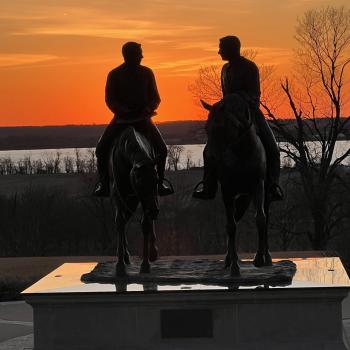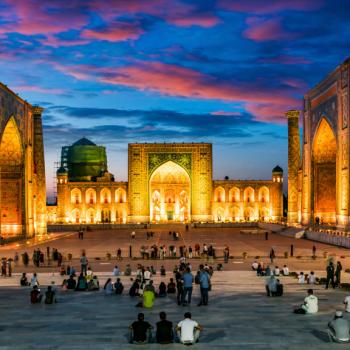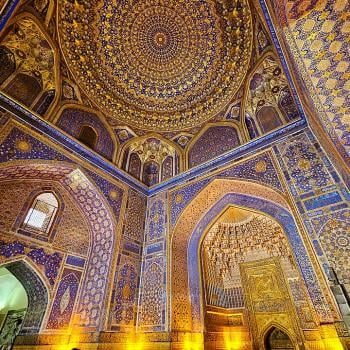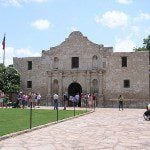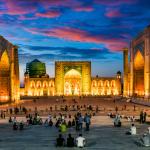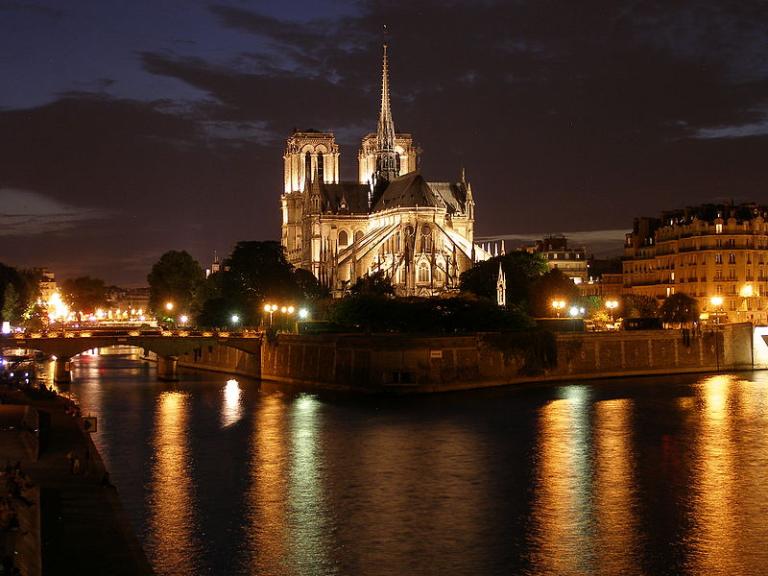
From the Interpreter Foundation, two discussions of Gospel Doctrine materials by Martin Tanner:
Audio Roundtable: Come, Follow Me New Testament Lesson 11 “These Twelve Jesus Sent Forth”
Audio Roundtable: Come, Follow Me New Testament Lesson 12 “Who Hath Ears to Hear, Let Him Hear”
Also from the Interpreter Foundation, a video discussion by Hales Swift:
***
There is always hope:
***
Here’s another bit of Church history from Rome:
“Apostles Testify of Jesus Christ in Rome: Excerpts from “The Living Christ” document given”
***
And that will serve as a transition point for an issue that has been especially on my mind because of the remarkable events of this past weekend in Rome and Vatican City:
Back on 20 February 2019, I posted a comment here that I titled “Theatricality in Church?” As part of that post I recalled — not entirely positively — a spectacular experience that I had on 15 August 1970 when I attended a mass celebrated by the then cardinal-archbishop of Paris in the Cathedral of Notre-Dame de Paris.
That blog entry brought a response from a distinguished senior Catholic scholar — formerly, among other things, a president of the Mormon History Association — who describes himself as “a faithful reader of [my] blog” and who, at one point not too long ago, even seriously considered joining a tour of Israel with me. (I would have loved it and would have been honored, but, in the end, health considerations kept him from coming.)
Among other things (on other subjects, not relevant here), he wrote:
I replied to him, in part, as follows:
You raised a serious issue, and I want to make sure that I’m clearly understand. I’m not even remotely anti-Catholic, but perhaps I left myself open to misunderstanding. I would like to clarify my view, not only to you but publicly to anybody else who might be concerned.
Here’s a quick public clarification:
When I said that I’m “not even remotely anti-Catholic,” I could easily go further. I am, on the whole, an admirer of the Roman Catholic Church. When I go to Rome, with all its fascinating historical sites, it’s Vatican City that fascinates me the most. And I think that my feelings when I’m in and around St. Peter’s Basilica, and particularly among the tombs of the popes, can fairly be described as “reverence.” (I’m inclined to believe, for one thing, that the apostle Peter’s tomb probably does sit below the high altar of the Basilica: “Why was Peter in Rome?”)
One of the greatest experiences of my life was setting up and being involved with a project to digitize manuscripts in the Bibliotheca Apostolica Vaticana, which, among other things, had me meeting with various high-ranking Vatican cardinals and, in particular, interacting with Edward Idris Cardinal Cassidy, whom I admire and respect. I tell something about my experiences with him, and reflect more broadly on my feelings toward the Catholic Church, in
“It Took a Village to Prepare for the Restoration”
I also wrote about Latter-day Saint attitudes toward the Catholic Church here:
“Mormon-Catholic tolerance goes back to Brigham Young”
I consider Pope St. John Paul II one of the towering figures of the twentieth century, and a hero. Being privileged to see him at fairly close range when I was invited to attend a meeting with him in Rome’s Basilica of St. Paul Outside the Walls was a special thrill. Father Georges Anawati was my tutor in Islamic philosophy during my last year in Cairo. I held him not only in high esteem but in great affection, and I still do.
A story that I’ve mentioned here before:
Back in September 2006, I was lecturing about Islam on behalf of the area presidency in Australia and New Zealand, as well as meeting with local political leaders, Muslim authorities, and so forth, and doing radio interviews. While I was there, Pope Benedict XVI delivered some controversial remarks at Germany’s University of Regensburg, where he had once served as a professor. Some thought that he had insulted Islam. Very quickly, his comments became a focus of my interviews. Thanks to the miracle of the internet, I was soon able to read the original German text of his remarks, which, in my judgment and understood in context, weren’t nearly as inflammatory and negative as the press was reporting and as many Muslims were assuming. (I do think that the Pope was perhaps surprised by the fact that the subtle nuances of an academic lecture by the intellectually sophisticated former Professor Joseph Ratzinger were lost on sensationalistic and unsubtle journalists.)
Anyway, I found it ironic that I, a Latter-day Saint Islamicist, was soon busy on various radio programs defending the head of the Roman Catholic Church, pleading with people to calm down and carefully read what he had actually said rather than merely some cherry-picked excerpts. But I was happy to do it. The Pope’s points were debatable, but they were intellectually serious, and they deserved intellectually serious responses.
Incidentally, I had to do one of my interviews by cell phone, pulled over at an ice cream place (to which Elder Louis Midgley and his wife had introduced me on a previous visit) alongside the (surprisingly noisy) road between Auckland and Hamilton, New Zealand. Every once in a while a truck would go roaring by. It was . . . unusual. But, while we were there, we enjoyed the ice cream.
I should also point out that I have attended mass many times since that experience in Paris in 1970, and that, overwhelmingly, those experiences haven’t struck me as “theatrical.” I would never, ever, maintain that the Roman Catholic Church is “mere theater.” And, for the record, with a few exceptions, of all the members of the clergy that I met during my mission in Switzerland, I was most impressed with the Catholic priests and found them most congenial, intellectually and in other ways.
Finally, one of my children was born on what was, until relatively recently, the feast day of one of the official “doctors” of the Catholic Church, a saint for whom my admiration is vast — and, for that reason, that child shares the name of that saint.
I realize that there was a lot of anti-Catholic rhetoric among Latter-day Saints in the nineteenth century and into the twentieth. Elder Bruce R. McConkie was probably the last significant exponent of such views, but he was not encouraged in them by the leaders of the Church. I believe that they were a legacy of the Protestantism of virtually all of our first converts.
But I don’t share them. And neither, I think, did Joseph Smith:
In August 1836, Joseph Smith visited the burnt-out remains of the Catholic Ursuline convent in Charlestown, Massachusetts. Two years previously, a mob, angered at Irish Catholic immigrants to the United States, had destroyed the convent and left dozens of Catholic nuns homeless. Joseph was, evidently, indignant at the injustice.
“If it has been demonstrated that I have been willing to die for a ‘Mormon,'” he said in 1843, “I am bold to declare before Heaven that I am just as ready to die in defending the rights of a Presbyterian, a Baptist, or a good man of any denomination; for the same principle which would trample upon the rights of the Latter-day Saints would trample upon the rights of the Roman Catholics, or of any other denomination who may be unpopular and too weak to defend themselves. It is a love of liberty which inspires my soul — civil and religious liberty to the whole of the human race.”
In a manuscript by Thomas Bullock that is preserved in the Church History Library of The Church of Jesus Christ of Latter-day Saints (MS 155, box 4 folder 6), Joseph is reported to have said that
[the] old Catholic Church is worth more than all [the other churches]—here is a princ[iple]. of logic–that men have no more sense–I will illustrate [with] an old apple tree—here jumps off a branch & says I am the true tree. & you are corrupt–if the whole tree is corrupt how can any true thing come out of it—the charr[character] of the old ones have always been sland[ere]d. by all apos[tates] since the world began—I testify again as God never will acknowledge any apost[ate]: any man who will betray the Catholics will betray you–& if he will betray one anoth[e]r. he will betray you
Have I been clear enough? While I am not a Catholic and while I disagree with certain important elements of Catholic doctrine and practice — or, to put it more positively, while I am a convinced and committed believer in the Restoration and in the Restored Church of Jesus Christ — I utterly and absolutely reject anti-Catholicism.



